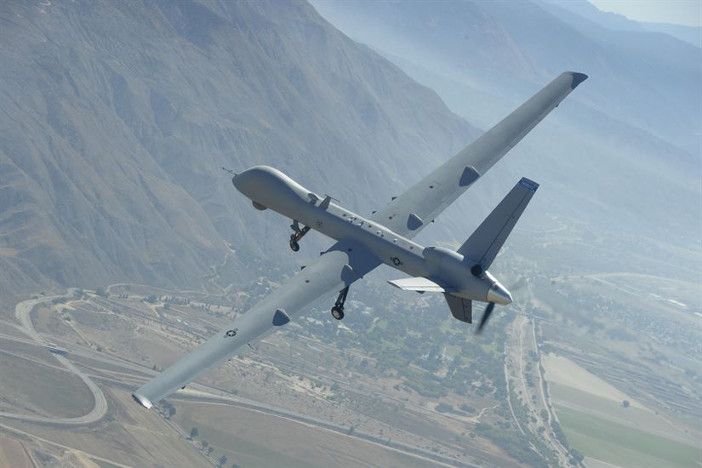The US Air Force Research Laboratory and the UK’s Defence Science and Technology Laboratory are partnering on a competition to develop artificial intelligence for swarming-drones.
The “Swarm and Search AI Challenge: 2019 Fire Hack” challenge will explore new, efficient and resilient ways to plan complex unmanned aerial systems search and rescue missions.
The theme of the challenge revolves around mapping wildfires with Unmanned Aerial Systems (UAS) that feature improved mission planning and the capability to react to dynamic changes to minimize damage and save lives.
The competition aims to find the best artificial intelligence or machine learning algorithms that embody efficiency and resiliency. Solutions spawned by the challenge may also apply to defense applications.
Teams will work remotely, via a closed, online collaboration platform to explore different fire-map scenarios using Air Force-licensed software.
Once the top 10 teams have been selected, an international showdown will take place March 29 – 31 in order to select the top three teams. Those teams will be awarded cash prizes and learn about upcoming funding opportunities.
In addition, the highest scoring solution will be showcased at the 2019 Association for Unmanned Vehicle Systems International Conference and the UK Embassy Showcase in Washington, DC.
The competition also involves the USA-based Wright Brothers Institute and University of Dayton Research Institute.
Mick Hitchcock, program manager from the Air Force Research Laboratory said, “It is fantastic to be able to work with DSTL on this project.
“The activity fits right into both countries’ desire to approach research differently, and involves non-traditional, innovative thinkers as partners and most importantly, get results faster.
“The competition is not between the two countries, but to highlight the ability to rapidly work together on tough problems.”
Timothy Wright, Defence Science and Technology Laboratory’s aerospace systems group leader said, “Swarming UAS is rich with innovation and we are looking to solve perceived problems and invent new ways of controlling swarms of drones.
“There are also a number of science and technology challenges already commissioned in this area that link closely with the proposed outputs from this challenge.”
Registration began this month and closes on February 26. The online competition concludes March 15. For more information, go here.





